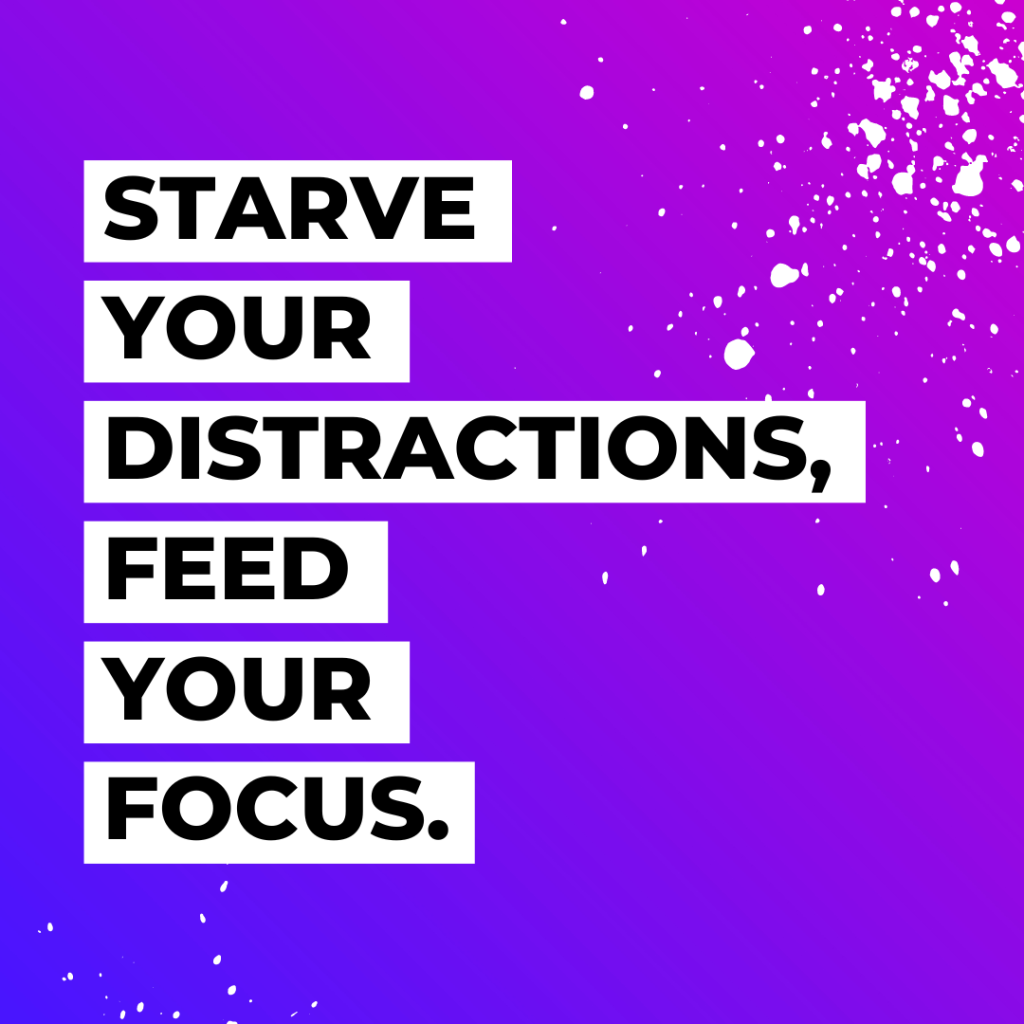Advertisement:
With over 25 years of experience as a business consultant, Abdul Vasi has helped countless brands grow and thrive. As a successful entrepreneur, tech expert, and published author, Abdul knows what it takes to succeed in today’s competitive market.
Whether you’re looking to refine your strategy, boost your brand, or drive real growth, Abdul provides tailored solutions to meet your unique needs.
Get started today and enjoy a 20% discount on your first package! Let’s work together to take your business to the next level!
In today’s fast-paced world, staying focused can be a challenge. Distractions are everywhere, and it’s easy to get sidetracked. Understanding the reasons behind why you get distracted can help you take steps to improve your concentration. In this blog post, we’ll explore four common reasons for distraction, share stories featuring Indian names, and provide tips on how to avoid these distractions.
1. Lack of Interest in the Task
When you are not genuinely interested in the task at hand, it’s easy to get distracted.
Story: Ananya, a young professional in Bangalore, often found herself daydreaming during long meetings at work. She struggled to stay focused on her tasks because she didn’t find them engaging. Instead, she would think about her weekend plans or scroll through social media.
Solution: To combat this, try to find an aspect of the task that interests you. If that’s not possible, set small, achievable goals and reward yourself for completing them. Breaking the task into smaller, more manageable pieces can also make it less daunting and more engaging.
2. External Distractions
External factors such as noise, interruptions from colleagues or family members, and digital notifications can easily divert your attention.
Story: Raj, a student from Mumbai, had difficulty studying at home because of the constant noise from the bustling streets outside his window. His younger siblings would often interrupt him, and notifications from his phone added to his distractions.
Solution: Create a dedicated workspace that is free from distractions. Use noise-canceling headphones or play soft background music to drown out external noise. Set boundaries with those around you and let them know when you need uninterrupted time. Additionally, turn off unnecessary notifications on your phone and computer.
3. Mental Fatigue
When you are mentally exhausted, your ability to focus diminishes significantly.
Story: Priya, an IT professional from Hyderabad, often worked long hours without taking breaks. By the end of the day, she found it difficult to concentrate on her tasks and would end up making mistakes. Her productivity decreased as her mental fatigue increased.
Solution: Take regular breaks to recharge your mind. Follow the Pomodoro Technique, which involves working for 25 minutes and then taking a 5-minute break. Make sure to get enough sleep, eat a healthy diet, and exercise regularly to maintain your overall well-being and reduce mental fatigue.
4. Multitasking
Trying to do multiple things at once can reduce your efficiency and increase distractions.
Story: Arun, a marketing executive from Delhi, prided himself on being able to juggle multiple tasks at once. He would answer emails while attending conference calls and work on presentations while chatting with colleagues. However, this constant switching between tasks left him feeling scattered and reduced his overall productivity.
Solution: Focus on one task at a time. Prioritize your tasks and tackle them in order of importance. Use task management tools like Trello or Asana to organize your work and stay on track. By dedicating your full attention to one task at a time, you’ll complete it more efficiently and effectively.
How to Avoid Distractions
1. Create a Distraction-Free Environment
Set up a workspace that minimizes potential distractions. Choose a quiet location, keep your desk organized, and remove any unnecessary items that might divert your attention.
2. Set Clear Goals and Priorities
Having a clear sense of what you need to accomplish can help you stay focused. Make a to-do list and prioritize your tasks. This will give you a roadmap to follow and reduce the temptation to get sidetracked.
3. Practice Mindfulness
Mindfulness techniques, such as meditation and deep breathing exercises, can improve your focus and concentration. Spend a few minutes each day practicing mindfulness to train your brain to stay present and attentive.
4. Limit Digital Distractions
Technology can be a major source of distraction. Turn off non-essential notifications on your devices and use apps like Focus@Will or Freedom to block distracting websites and apps during work hours.
5. Take Care of Your Health
A healthy body contributes to a healthy mind. Ensure you get enough sleep, eat nutritious meals, and engage in regular physical activity. This will help you maintain high energy levels and better focus throughout the day.
6. Establish a Routine
Having a consistent daily routine can help you stay organized and focused. Allocate specific times for work, breaks, and personal activities. This will create a sense of structure and reduce the likelihood of getting distracted.
Conclusion
Distractions are an inevitable part of life, but by understanding their causes and implementing strategies to manage them, you can improve your focus and productivity. Whether it’s finding interest in your tasks, creating a distraction-free environment, or practicing mindfulness, there are many ways to stay on track. Remember, it’s all about finding what works best for you and making small adjustments to your routine.
Call to Action: Have you found effective ways to manage distractions? Share your tips and experiences in the comments below!




